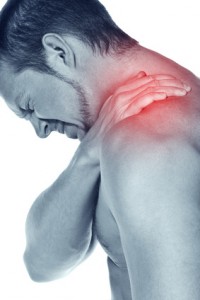 What is chronic pain? Chronic pain can exist in many forms. It can be mild or unbearable. It can come in spurts or be continuous. It can also range from being an inconvenience to being debilitating. Typically, it’s categorized as pain that lasts longer than three to six months.
What is chronic pain? Chronic pain can exist in many forms. It can be mild or unbearable. It can come in spurts or be continuous. It can also range from being an inconvenience to being debilitating. Typically, it’s categorized as pain that lasts longer than three to six months.
Millions of Americans suffer from chronic pain. And not only does it take a physical and emotional toll on an individual, but it puts them at risk for health issues such as a weakened immune system, liver damage or stomach bleeding as a result of overuse of NSAIDs, or potential abuse of prescription painkillers.
The majority of chronic pain is caused by an initial injury or infection, but that is not always the case. Some people suffer from chronic pain without past trauma to a specific area of the body. Or they suffer from pain that isn’t confined to one part of the body.
Most people with chronic pain report headaches, joint pain, back aches, or pain associated with parts such as the pelvis, neck or shoulders. Chronic pain is often described as soreness, stiffness, tightness, aching, or a feeling of discomfort. Tendinitis, sinus pain and carpal tunnel syndrome are also forms of chronic pain. Muscle or nerve pain as well as pain that is described as burning, stabbing, tingling or pins and needles can also be chronic pain.
Chronic pain is often experienced with other symptoms such as fatigue, anxiety, depression or irritability. In fact, studies show that the emotional toll of chronic pain can increase the effects of the physical pain, making it worse. Anxiety, stress, depression and fatigue can interfere with the body’s production of natural painkillers and increase the signals that amplify pain. This can create a vicious cycle that might need both physical and psychological attention to heal.


